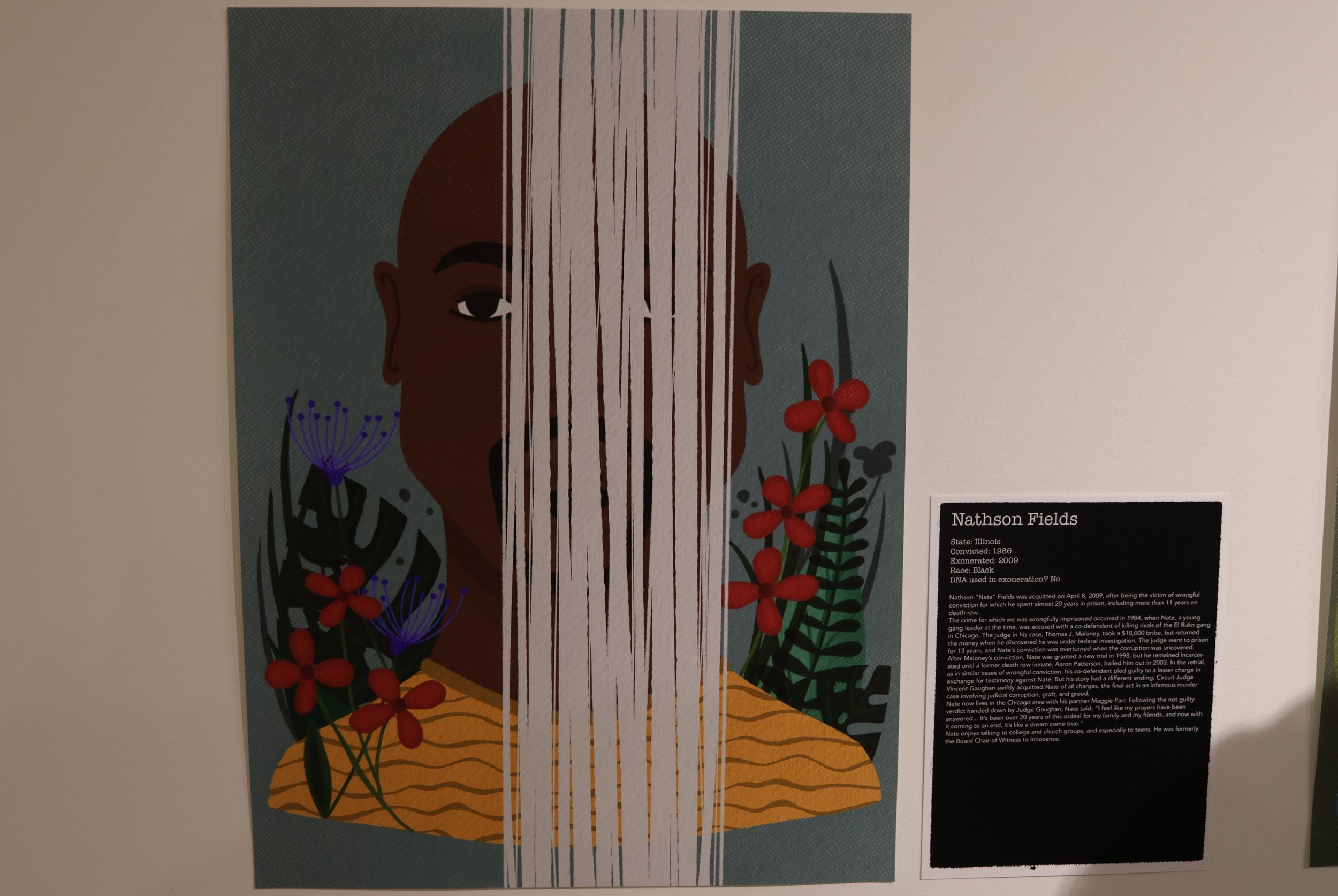Exonerated Death Row Inmate Shares Story of Wrongful Imprisonment
Herman Lindsey sharing his story in Montague Hall 70. This was his first time in Minnesota, he said he would like to come back when it gets warmer. (Photo by Seth Roeser 4/16/2024)
The University of Minnesota Duluth’s College of Arts, Humanities, & Social Sciences hosted speaker Herman Lindsey on Tuesday, April 16. Lindsey – who is from Florida – shared the story of his wrongful conviction, time on death row, his release and his subsequent work with the nonprofit organization Witness to Innocence. The event was preceded by a reception for UMD senior Holly Brown’s exhibit “Exonerated” in the Tweed Art Museum.
“It is very important that we have a conversation around criminal justice,” Lindsey said.
Capital punishment was abolished in Minnesota in 1911, but Lindsey believes speaking about his experience may inspire future lawyers and lawmakers who can affect change in states where it is still practiced.
But retelling his story can be painful.
“It’s emotional,” Lindsey said. “You have to relive it every time.”
Lindsey is the executive director of Witness to Innocence, a nonprofit aimed at informing the public about and empowering exonerated death row survivors by sharing their stories.
Lindsey was named a suspect but cleared of charges after a murder occurred at a pawn shop he frequented in 1994. Despite the prosecutors having no evidence of his involvement with the crime, Lindsey was arrested and found guilty of first-degree murder when the case was reopened in 2006.
The jury voted eight to four for capital punishment. Lindsey was sentenced to death by lethal injection but maintained his innocence.
“Sometimes, I still hear it in my sleep,” Lindsey said. “‘We the people of the state of Florida hereby sentence you to death by lethal injection.’ That’s something that will never leave me.”
Lindsey spent the next three years on death row separated from his two kids, 10 and 14 at the time. He read Western novels to take his mind off of his situation.
“I rolled a cigarette, fixed me a cup of coffee and sat and read my Western books like I was on the trail,” Lindsey said.
Lindsey’s case was the first in Florida’s history where all seven of the state’s supreme court’s judges voted unanimously that his arrest was unlawful on the grounds of the prosecutors failing to prove guilt beyond a reasonable doubt.
“When I saw the paper, I dropped to my knees,” Lindsey said as he recounted seeing the document saying he was free.
UMD studio arts major Holly Brown was connected with Lindsey when she started work on her senior art exhibit “Exonerated,” where she compiled the names of 196 death sentence exonerees.
Brown wrote the names of the exonerated on 196 tiles. She also read the stories of each exoneree, which she found on Witness to Innocence’s website.
According to the Death Penalty Information Center, 197 people have been exonerated from death row in the U.S. since 1973. Florida has had 30 exonerees. (Photo by Seth Roeser 4/16/2024)
“I’m just seeing these piles of tiles build up on my workspace,” Brown said. "Just thinking about all these stories, how they were incarcerated, sometimes I would need to take a break for a little bit because it’s pretty heavy.”
The tiles were placed in a 7-foot by 7-foot square – roughly the size of a death row cell.
Also featured on display were the “Faces of the Exonerated.” Brown created likenesses of 10 exonerees, their portraits acting as timelines of their lives, and obscured their faces proportional to the amount of time they spent on death row.
Nathson Fields spent 11 years on death row before being exonerated. (Photo by Seth Roeser 4/16/2024)
“I really want to highlight those who have been exonerated from death row and highlight the portion of their lives that was lost when they were wrongfully incarcerated,” Brown said.
Lindsey started and ended his lecture by encouraging the audience to view Brown’s exhibit in Tweed.
“It is the most powerful exhibit I have seen,” Lindsey said. “It is an outstanding, amazing job.”



